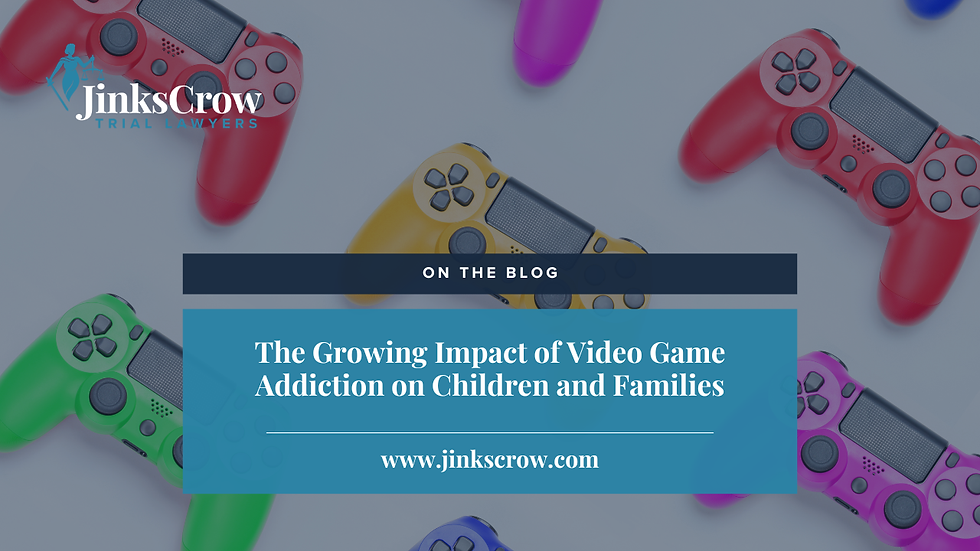Paraquat Lawsuit Update: What's Going On?
- Jinks Crow

- Jul 19, 2022
- 2 min read

The Paraquat lawsuit is growing at an increasing rate. Since May 2022, over 150 new Paraquat lawsuits were filed or transferred into the MDL, bringing the current number of plaintiffs to over 1,300. In the past eight months, the Paraquat class action lawsuit has averaged over 120 new Paraquat Parkinson's disease lawsuits each month. The influx of new cases in the Paraquat class action lawsuit has been very consistent and not marked by the up and down fluctuations that we have seen in other mass torts.
Paraquat Lawsuit Update
As new cases continue to be filed, the court and the party leadership continue to move forward with discovery in a selection of cases for limited fact discovery. This spring, the Court ordered the parties to select a small number of cases as representative potential Bellwether cases. Last month, Judge Rosenstengel extended the discovery deadlines in these select cases. The Plaintiffs’ expert depositions are slated to be completed by November 18, with the defendants’ expert depositions to be completed by January 2023. The Court did not address Daubert motions in the June 17 Order.
What is Paraquat?
Paraquat is widely used by farmers in the production of crops, including corn, soy, cotton, peanuts, wheat, almonds, strawberries, grapes, sweet potatoes, and others. Its use has doubled over the past decade and is expected to grow due to its effectiveness on “superweeds” that have developed resistance to glyphosate (i.e. Roundup). It can also be used for the desiccation of crops, such as cotton, prior to harvest. In total, farmers apply more than 10 million pounds of Paraquat each year.
Numerous scientific studies have linked Paraquat to Parkinson’s.
A large 2011 study of U.S. farmers found that those who used paraquat were twice as likely to develop Parkinson’s disease as those who didn’t use the chemical. Other research has found that cumulative exposure over long periods increases the risk of developing Parkinson’s.
Exposure risks are not limited to people involved in agriculture, though.
Evidence also suggests that Paraquat can drift from the application site to nearby communities. Thus, people living in agricultural areas may be exposed to Paraquat that is applied to crops. Paraquat may contaminate ground or well water and even contaminate fruits, vegetables, nuts, and grains that are sold to the public.
%20Proof%20%235.png)



Comments